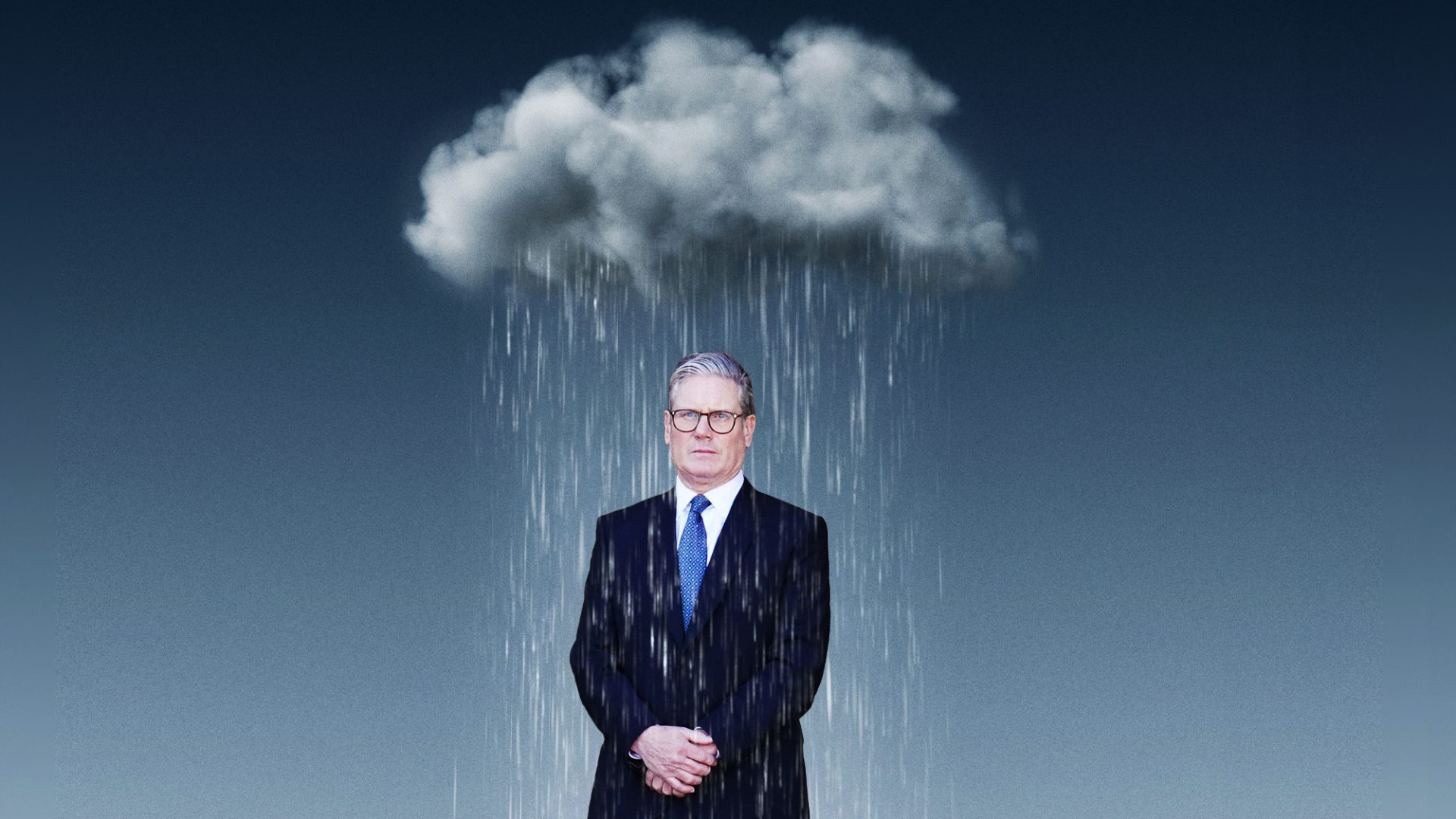Things will get worse before they get better, Keir Starmer told the nation in his keynote speech last month. He is at least half right.
When it comes to his own political prospects and power, he is right that things will get worse – when you come into No 10 in a sweeping landslide, the only way is down. The question is how slowly your support crumbles and your power ebbs away.
Tony Blair’s lasted long enough to grant him a second landslide and a third election victory, but not long enough to depart Downing Street on his own terms.
Starmer would surely be delighted if he had that long, given the political inheritance he has been granted. But much of that relies on his own decisions, and his own willingness to wield political power while he has it – if he wants to make any major changes that will take a while to pay off, it will never be as easy or as possible as it is now.
If he doesn’t do something significant now to change Britain’s prospects of growth, or fix its housing, or address any of the other pressing problems facing the nation, he will have years to regret that and live with the political consequences – but even if he is still in office, he will have little ability to do very much about it.
No 10 certainly seems to have grasped one aspect of this: that the unpopular decisions need to be made early, and it’s important to get the bad news out while people will still blame the previous government.
The prime minister’s proclamation the morning after the election that the country could now feel “the sunlight of hope” beginning to emerge feels as if it was a long time ago. All we have heard since then has been about “black holes”, first in the public finances and then apparently in the very fabric of British society itself.
The government is preparing itself to all but break election promises that no one genuinely expected them to keep. Every independent observer of the UK’s public finances had flagged up that the Conservatives had passed not one but two national insurance cuts that were completely unaffordable and which had not been paid for – with a colossal price tag of around £20bn a year.
It coupled this with plans for public spending that were so austere that no one believed them to be credible. But to avoid a row on finances, Labour pretended to see no problem with them, and said it would stick to the Tory plans.
It used this wilful blindness to pledge that it would not raise taxes on “working people”, specifically ruling out increases to income tax, national insurance, or VAT. While it was in the mood to make promises, it also pledged not to raise corporation tax, either.
Since becoming the government, Labour can argue it has genuinely found that public finances were even worse than expected – that is true and supported by independent watchdogs such as the Office for Budget Responsibility and the Institute for Fiscal Studies. But in reality, it knew it would have to raise taxes, and has only discovered that it will have to do this on an even larger scale than it had previously envisioned.
This is where Labour got too clever by half: it plans to say it hasn’t broken any promises, because it won’t increase any of the big four taxes it promised not to touch. The problem with this is that it is those big four that bring in the overwhelming majority of tax revenues – almost 80% between them.
That means if the government needs to raise anything between £15bn and £25bn a year just to right the ship – before any of the new spending voters might be hoping for – it is going to have to raise a lot of smaller taxes, probably by quite a lot. Instead of one big and simple rise, it will have to do potentially dozens of smaller ones.
This is made even tougher by how the UK handles fuel duty. In theory, fuel duty automatically increases every year, but for the last decade every single Tory chancellor has “cancelled” the rise – which costs a couple of billion a year each time it is done.
Simply ending that freeze would raise no extra money towards that shortfall, but since working people drive cars, it could be construed as a break of Labour’s promises on tax. Labour has boxed itself into trying to make the clever-clever claim that it has kept its promise on tax, while also trying to raise billions in revenue that cannot be done without some tax on working people. It is going to get all of the flak for breaking its promise, and then make it worse by saying that actually it didn’t break the promise and it’s the voters who are wrong.
All of this is made even more bizarre because the government is doing this in order to keep Rishi Sunak’s wildly irresponsible double cuts to national insurance. Labour’s narrative is essentially that the Tories gutted the public finances with these irresponsible tax cuts, which it isn’t going to reverse.
Instead, it will own the pain of numerous policies like means-testing the winter fuel allowance, all to make sure Sunak’s tax cuts stay. It is essentially breaking its promises on tax and introducing even more restraint on spending – mini-austerity, if you will – just to keep Sunak’s policies.
Labour ran on a platform that made breaking at least some of its promises inevitable – but it also ran promising to place economic growth at the very core of its government. It would be the guiding star, the top priority, the thing against which other policies would be judged: if it doesn’t boost productivity or growth, don’t expect it to be funded.
If the government will break its promises to keep Sunak’s election tax cut, then surely it should look to break its promises in order to boost economic growth. It has lost its points for honesty, and it has already made the sales pitch as to why the country needs an even bigger boost than we first believed.
Growth is the magic trick that avoids austerity. If the country can grow at a rate of 2% instead of 0.5% for a few years, the government has tens of billions in extra revenue even if it doesn’t raise the rates of any taxes. It is the ultimate free lunch.
The usual problem with boosting economic growth is that it is notoriously difficult for governments to do, and often lies outside the ambit of government policy – depending on technological innovation and other exogenous factors.
This is where Keir Starmer and his government got lucky: the previous government did something very obviously and measurably damaging to economic growth. It left the European Union.
Keir Starmer does not need to swathe himself in the European Union flag and start singing the Ode To Joy – rejoining the EU was not on the ballot in the 2024 general election and he does not need to pick that particular fight.
But despite the determination for Westminster politicians to say that “Brexit is done”, the public don’t feel the same – a majority of the nation thinks it is still an ongoing process and not something that can just be wished away. Our ongoing and future trade relations with Europe are not “done”.
International trade relations barely used to get signed off by parliament, let alone require a referendum. The government’s main barrier to seeking closer trade relations with the EU is the largely needless promises it made in its own manifesto – that it would not rejoin anything resembling the customs union or the single market.
Rejoining the single market would be worth between 4% and 7% of UK GDP within the next decade – a huge surge in growth that would boost wages, profits, and amount to around £15bn to £20bn in extra tax revenue for the government every year. Just on its own it would almost be enough to plug the fiscal “black hole”.
Single market membership comes with a huge catch, of course, which is allowing full freedom of movement. Given how Reform and the Conservatives have pushed immigration up the agenda, it is vanishingly unlikely that the government will take this route – but there is another.
Theresa May was happy to endorse the UK remaining in the customs union as a genuine and “hard” Brexit. It does not require freedom of movement, and it stops well short of the level of cooperation required by the single market.
For that reason, the economic benefits are smaller than rejoining the single market, but they are not nothing – a boost to GDP of 1% to 3%, and extra tax revenues of £5bn to £8bn, not to mention making importing and exporting to Europe a viable proposition once again for the kinds of small businesses any government wants to encourage.
If not now, it will probably never happen while Keir Starmer is prime minister. But if you’re going to break the promises that got you elected within your first six months of government, why not do it for a good cause?
If nothing else, it might just inspire the nation a little more than banning having a cigarette with your pint.




